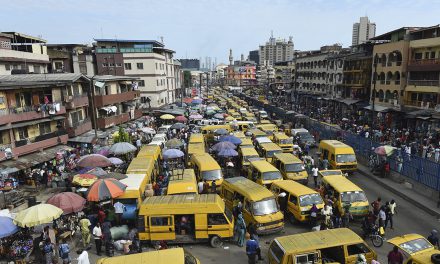As the Fourth Industrial Revolution (4IR), founded on data, data ecosystems and the data economy gains global momentum, there is a crucial need for African governments to harness the opportunities this revolution presents.
The open data movement in Africa has, in recent years, gained significant momentum and produced a considerable amount of empirical evidence that attests to its value and potential, according to the 2018 Africa Data Revolution Report (ADRR).
However, many African states continue to be afflicted by a critical lack of open, credible, and accessible data or “data deserts”, which pose a significant challenge in achieving the African Union’s Agenda 2063 targets and the UN’s Sustainable Development Goals (SDGs) 2030.
As a result, the often-fragile capacity of African states to generate and regulate their own data ecosystems becomes a concern, especially for stakeholder and donor organisations, research and civil society initiatives that rely on data.
In July 2017, at the second Africa Open Data Conference held in Accra, Ghana, the first biennial ADRR was launched. The inaugural (2016) report recognised the adoption of, and commitments to, SDGs and the AU’s 2030 agenda, outlining principles to guide the data revolution on the continent (ADRR, 2018: 1). It looked at the emerging tools and techniques that could potentially be used to acquire better quality, more disaggregated data to improve how the various indicators associated with the various national development plans, as well as the SDGs and AU agenda 2063, are approached and measured.
The ADRR 2018 also highlighted a proposed stage model to guide government agencies’ implementation efforts to develop high-functional, efficient data ecosystems. This model argues that the implementation of open data initiatives should be an incremental process across four stages of development and implementation.
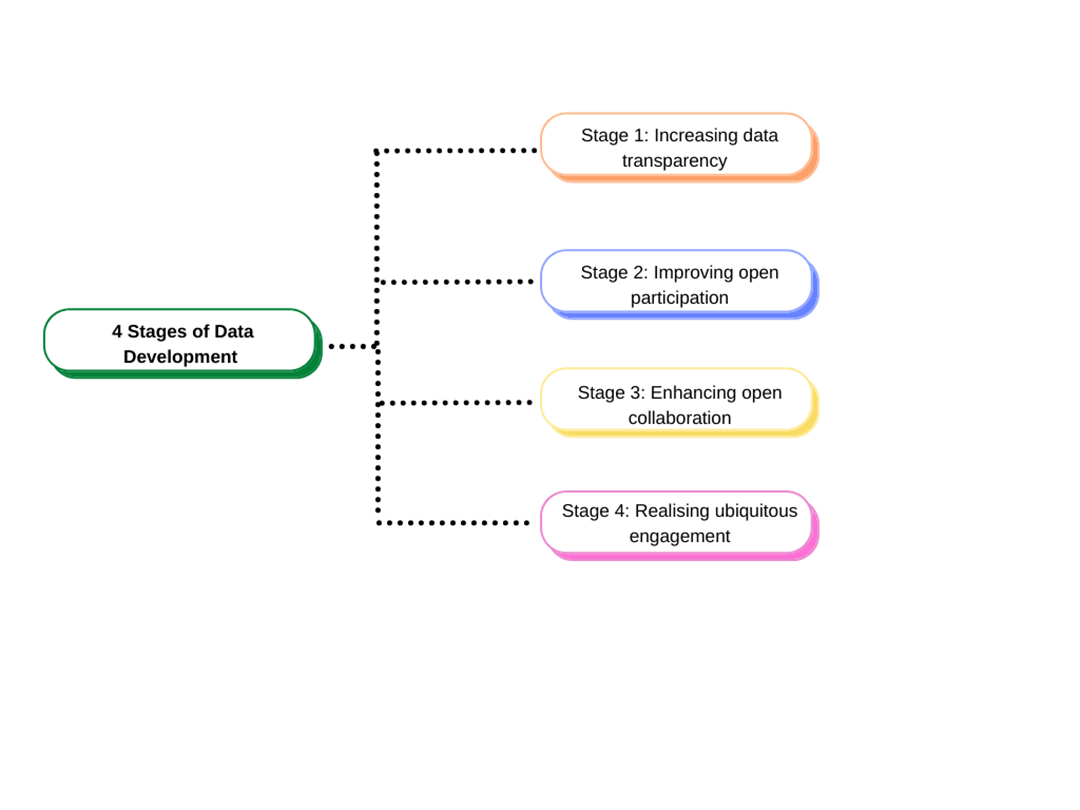
Source : Africa Data Revolution Report 2018
In recommending ways to promote open data initiatives in Africa, the ADRR identified two main barriers to innovation, digitalisation, and data progression on the continent. The first was that conventional approaches to national and local data acquisition are an inefficient, time- and labour-intensive process that yields far less revealing and potent outcomes. The second was that the majority of the data revolution technologies available or accessible to both governments and independent organisations in Africa were costly and still in their infancy. Open data, on the other hand, would circumvent both these barriers of inefficiency and impracticality.
The ADRR 2018 included an Open Data Barometer survey and a special Africa Open Data Index (AODI) regional edition, which assessed the current state, development, and management of data ecosystems in 30 countries, and evaluated some of the stronger and weaker regions on the continent in terms of their progress toward becoming data and digital innovation hubs. The AODI revealed that while administrative and legal data was usually available on government agency websites, further information about who is generating and releasing the data remained largely absent and, in many cases, required secondary sources. It was found that roughly 25% of all datasets were not accessible online, while only 30% of the accessed datasets were provided in a timely manner. Finally, the ADRR reported that only 28 out of the assessed 420 datasets (or 6%) were openly licensed.
The findings revealed that data provenance and thus the development of data ecosystems could be involved by: making the data permanently accessible and easy to find; clearly communicating where and by whom the data was generated and released; prioritising how certain data is published; the incorporation of metadata and provision of machine-readable formats to ensure that citizens can easily understand it; and finally, using standard open licences and developing a comprehensive legal framework for the production and distribution of open data.
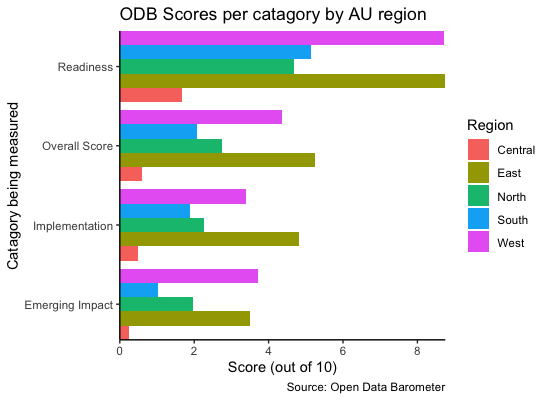
The Open Data Barometer (ODB) was used across 29 countries to analyse the readiness, implementation, and impact of open data initiatives on business, and political and civil ecosystems. Of the 28 countries sampled, nine were in West Africa (Benin, Burkina Faso, Côte d’Ivoire, Ghana, Mali, Nigeria, Senegal, Sierra Leone and Togo), seven in East Africa (Ethiopia, Kenya, Malawi, Mauritius, Rwanda, Tanzania and Uganda), seven in southern Africa (Botswana, Mozambique, Namibia, South Africa, eSwatini, Swaziland, Zambia, and Zimbabwe), three in North Africa (Egypt, Morocco and Tunisia), and two in central Africa (Cameroon and the Democratic Republic of Congo). The Barometer findings revealed that while progress and development of comprehensive data ecosystems remained slow, countries in East and West Africa were more willing and able to follow through on their implementation, engagement, and maintenance, and therefore had a better prospect of developing data ecosystems.
Looking at how open data and open government data (OGD) were used to achieve the SDGs, East African states have displayed a heightened ambition and active implementation of data initiatives toward achieving the SDGs. Kenya, meanwhile, has accelerated its commitment to open data since 2011, and implemented more than seven open data initiatives (more than any other AU country) that directly align with progressing toward achieving the SDGs.
Likewise, Rwanda is using open data to ambitiously achieve their 2030 SDGs. Primarily, Rwanda uses open data to promote greater accountability in governance and greater civil empowerment through the digitalisation of government services, for example, a database with information on more than 4,800 points of interest as well as access to the official school inventory and districts.
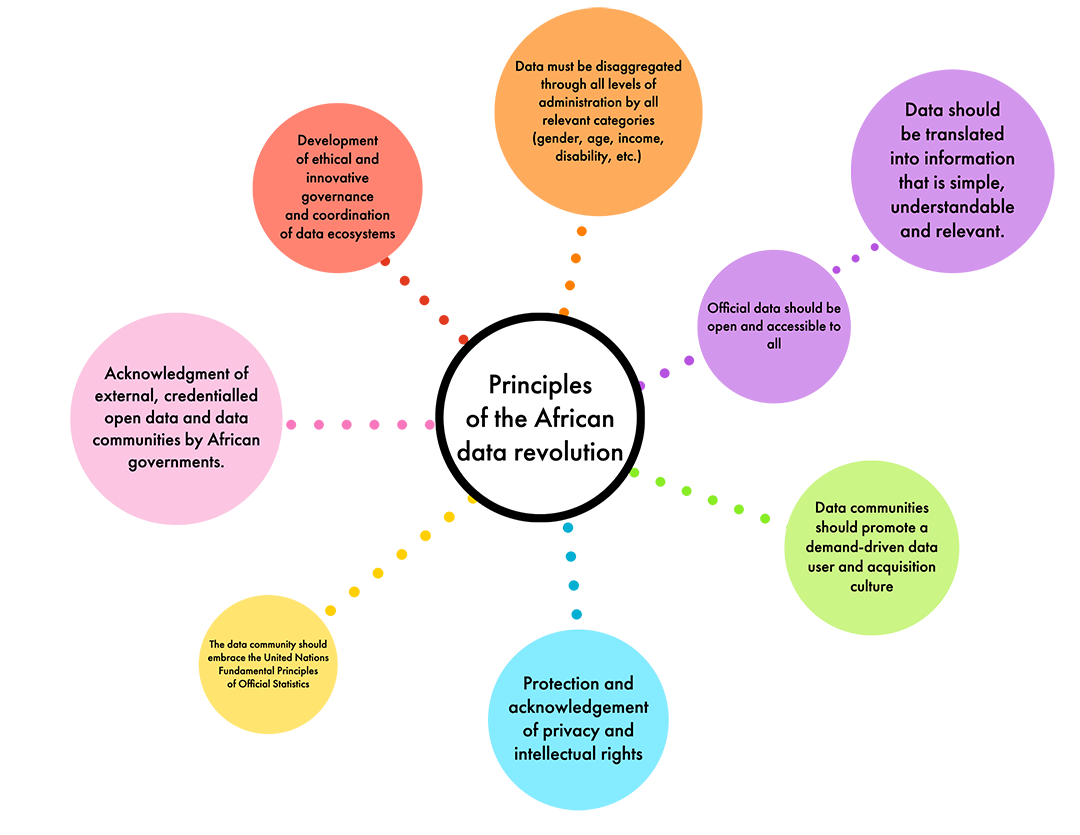
Source: United Nations Economic Commission for Africa 2015, taken from The Africa Data Revolution Report 2016
Meanwhile, the World Bank Statistical Capacity Indicator (SCI), which assesses the statistical capacity of countries according to the methodology used to collect and compile data, the frequency and punctuality of data collection, as well as the quality of the data and sources collected, has said Mauritius, Rwanda, and Uganda all managed to improve their 2020 score by at least 10 points when compared to its first assessment in 2004. Moreover, Mauritius has remained the highest scorer in Africa, while Rwanda, Uganda and Seychelles have all remained within the top five highest African scorers.
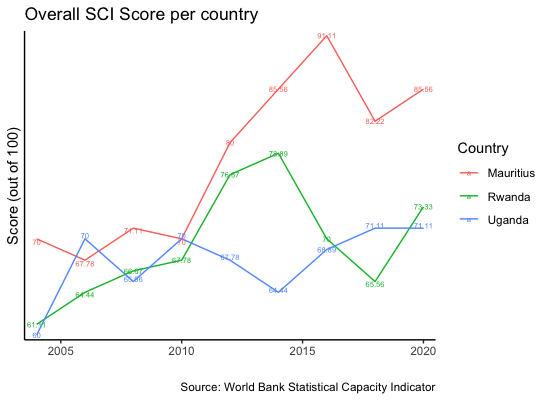
Looking at the data available from both the ADRR and the World Bank, there are several points to be made about the state and development of comprehensive data ecosystems in Africa:
- Most governments still lack any kind of comprehensive guidelines, technical standards, and management procedures for their open data. While many countries are showing a willingness to commit to OGD, implementation, resourcing and engagement remain below par.
- Open data has not yet been entrenched into law, and the legal frameworks that guide and support OGD remain largely or entirely absent. Implementation and resourcing are also very weak.
- The implementation and release of open data initiatives does not ensure a significant impact. Rather, the data sourced and released must contribute critically to an area in which previously absent data has resulted in a data gap, or “data desert”, that hinders policy making and accessible information.
- Across most indicators (we looked at the AODI, ODB and the SCI), countries in East Africa performed above average where the methodology, quality of data and willingness to implement actionable improvements were measured. According to these assessments, East Africa appears to be the region most prepared to benefit from open data – and the African data revolution – and become a pioneer in data innovation on the continent.
Note: The International Open Data Charter (ODC) defines open data as “publicly available data that can be universally and readily accessed, used and redistributed free of charge. It is structured for usability and computability” (ADRR, 2018:4 5-7). A subset of open data is Open Government Data (OGD), which is defined as “open data generated and released by local or regional government ministries, departments, and agencies (MDAs)” (ADRR, 2018:4 5-7).
[activecampaign form=1]
Mischka Moosa is a data journalist at GGA. She holds a Bachelor of Social Science with majors in Gender Studies and Political Science that she obtained from the University of Cape Town. Her focus of interest is on decolonial approaches to justice, development and transformation in Africa.



